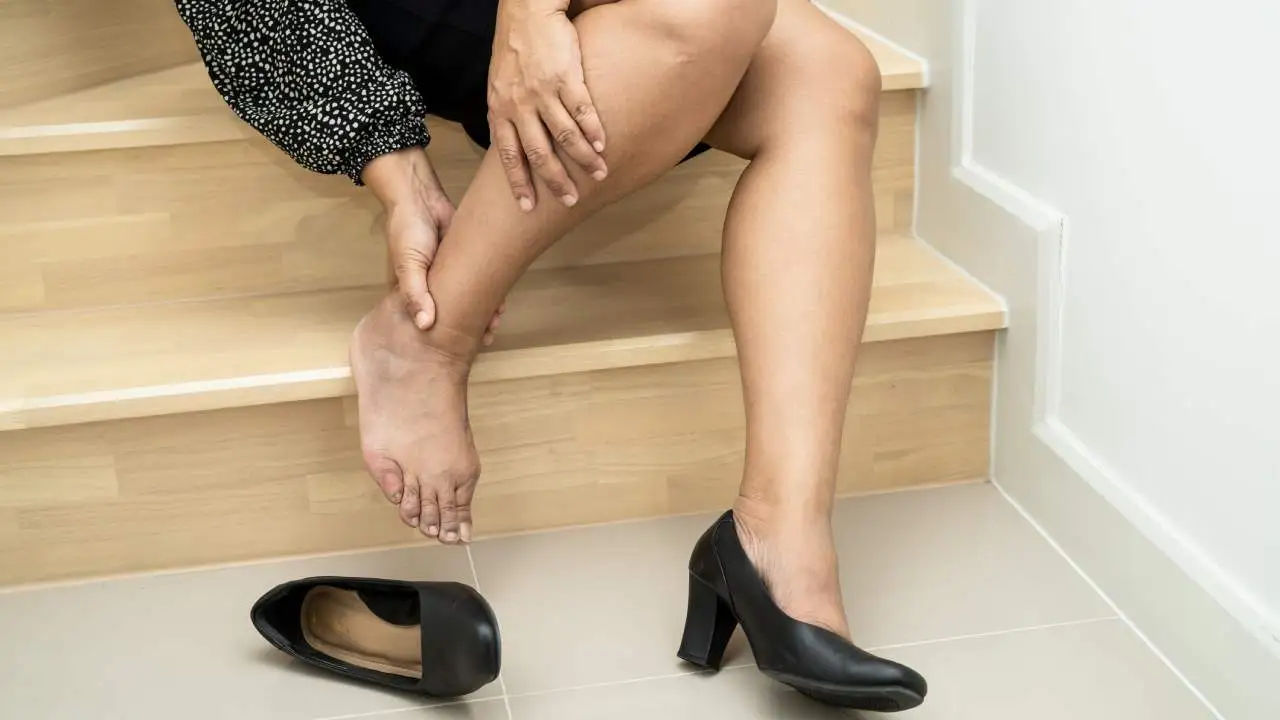What makes your legs feel heavy?
Do your legs feel heavy sometimes? Do they feel like they’re weighed down or that you can’t move them as freely as you’d like? Do you have swollen legs? There are a few possible explanations for why your legs might feel heavy. It could signify something minor, like dehydration or muscle fatigue. Or, it could be a symptom of a more serious condition, like peripheral artery disease (PAD), deep vein thrombosis (DVT), or chronic venous insufficiency (CVI). Here are 7 possible causes of leg heaviness and restless leg syndrome.
1. Dehydration
Dehydration can cause your legs to feel heavy and tired. When dehydrated, your body doesn’t have enough fluid to support its functions. This can lead to muscle weakness and cramping. If you think you might be dehydrated, drink plenty of fluids and see if your symptoms improve. Try to drink at least 8 glasses of water a day. You can also try drinking herbal teas or fruit juices. Avoid caffeine and alcohol, which can dehydrate you further.
2. Muscle Fatigue
Your leg muscles may tire if you’ve been standing or walking for long periods. This is especially true if you’re not used to exercising. Muscle fatigue can cause your legs to feel heavy, weak, and achy. To relieve muscle fatigue, rest your legs often. Elevate your legs above your heart to help reduce swelling. You can also massage your legs or take a warm bath.
3. Restless Leg Syndrome
RLS is a condition that causes an irresistible urge to move the legs, often accompanied by a tingling or creeping sensation. This can occur at night and make it difficult to sleep. RLS is believed to be caused by an imbalance of dopamine in the brain, which can happen because of chronic venous insufficiency and can be aggravated by certain medications, pregnancy, and iron deficiency.
4. Peripheral Artery Disease (PAD)
Peripheral artery disease (PAD) is a condition that occurs when plaque builds up in your arteries. This plaque can restrict blood flow to your legs and cause symptoms like leg heaviness, cramping, and fatigue. If you have PAD, your doctor may recommend lifestyle changes, like quitting smoking and exercising more. You may also need medication to improve blood flow or surgery to open blocked arteries.
5. Deep Vein Thrombosis (DVT)
Deep vein thrombosis (DVT) is a condition that occurs when a blood clot forms in a deep vein, usually in the leg. This clot can cause leg heaviness, pain, swelling, and cramping. DVT is a serious condition that requires treatment. You must see a doctor immediately if you think you have DVT. Your doctor may recommend taking blood thinners or undergoing surgery to remove the clot. Untreated DVT can be potentially fatal.
6. Pregnancy
One common cause of heavy legs is pregnancy. This is due to the increased weight and pressure on the legs and pelvis. Pregnant women often experience swelling in the legs and feet (called “edema”), which can contribute to the sensation of heaviness.
7. Chronic Venous Insufficiency (CVI)
Chronic venous insufficiency is a condition that occurs when the valves in your veins don’t work properly. This can cause blood to pool in your legs, leading to leg heaviness and swelling. If you have venous insufficiency, your doctor may recommend wearing compression stockings that apply pressure to your legs and help improve blood flow.
You may have chronic venous insufficiency if your leg heaviness worsens at night or after long periods of sitting or standing still. Some other signs and symptoms of vein disease include leg cramps, restless leg syndrome, throbbing leg veins, leg swelling, spider veins, and varicose veins. The only way to treat chronic venous insufficiency is with minimally invasive vein treatments, such as radiofrequency ablation and venaseal, so you must contact a vein doctor.
Vein Treatment Clinic is a group of state-of-the-art medical centers specializing in minimally invasive vein treatments. Our vein treatment clinics are led by board-certified vein doctors who always diagnose and treat the root cause of your vein problems, not just the symptoms. You can find our vein treatment clinics in New York City, Long Island, New Jersey, California, and Washington, DC. If you have leg heaviness and other symptoms of vein disease, please schedule an appointment at your nearest vein clinic today.
Why do my legs swell above my socks?
If you have swelling in your legs that is worse when you are standing or walking and decreases when you lie down, it may be caused by a condition called venous insufficiency. This occurs when the valves in your veins do not work properly and allow blood to pool in your legs. Swelling above your socks is a common symptom of venous insufficiency.
What does it mean when your legs and feet hurt?
There are a few things that could be causing your legs and feet to hurt. It could be something as simple as you’ve been standing on your feet all day, and they’re tired. Or you might have overdone it at the gym, and your muscles are sore. If the pain is constant or worsens when you walk, it could signify something more serious, like a blood clot or chronic venous insufficiency. If your legs and feet hurt, please contact a vein doctor near your location.
Are swollen legs a sign of heart problems?
Swollen legs could be a sign of heart problems. When the heart isn’t pumping blood as well as it should, fluid can back up in the veins in the legs. This is called venous insufficiency, and it can cause the legs to swell. If you experience leg swelling, leg heaviness, and leg cramps, please schedule an appointment at your nearest vein treatment clinic.
Frequently asked questions
Can chronic venous insufficiency heal itself?
No, it doesn’t go away on its own. This condition means your leg veins aren’t working quite right, and over time, that can get worse. The good news is, we can treat it, safely and gently.
Can walking cure venous insufficiency?
Walking is great for your circulation, and it can definitely help your legs feel better. But it won’t fix the problem completely. Think of it like brushing your teeth: it’s part of the routine, but you still need the dentist when something’s wrong.
What are the best treatments for vein disorders?
We use simple, low-risk treatments that help close or shrink the veins that aren’t working well. These include:
- A small injection (sclerotherapy)
- A gentle heat treatment to close the vein (ablation)
- A special foam (Varithena) that targets larger veins
These are outpatient treatments, meaning you go home the same day.
Can chronic venous insufficiency affect your life expectancy?
Not directly, no. But if you ignore it, it can cause painful problems like swelling, wounds, or clots. That’s why it’s important to catch it early. With the right care, you can stay active and avoid complications.
Why is chronic venous insufficiency in the spotlight right now?
Chronic venous insufficiency has been getting more attention lately after reports about Trump’s vein condition. Some news sources shared that Donald Trump was diagnosed with CVI, a condition that can cause leg swelling and circulation problems. That coverage has helped raise awareness and made more people curious about their own symptoms. It’s a reminder that leg discomfort isn’t just part of getting older. It’s something worth checking out.









